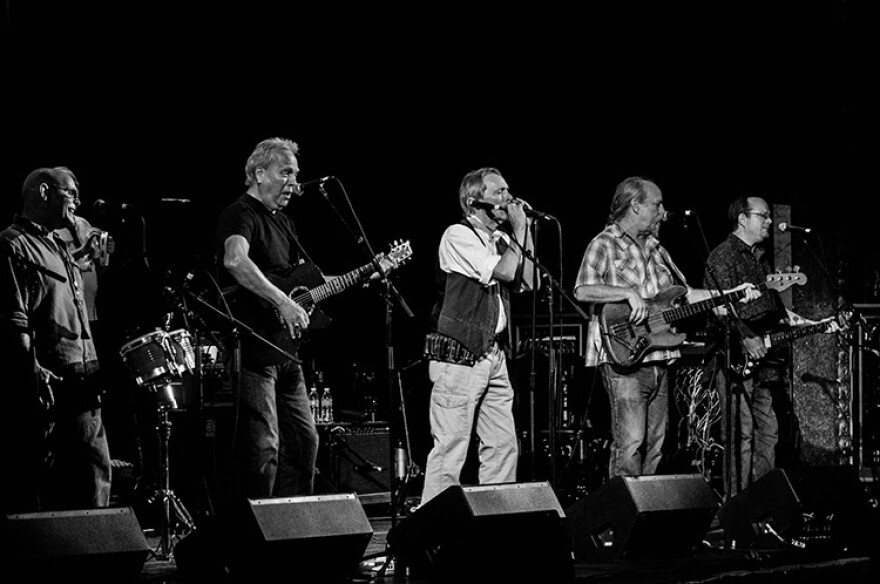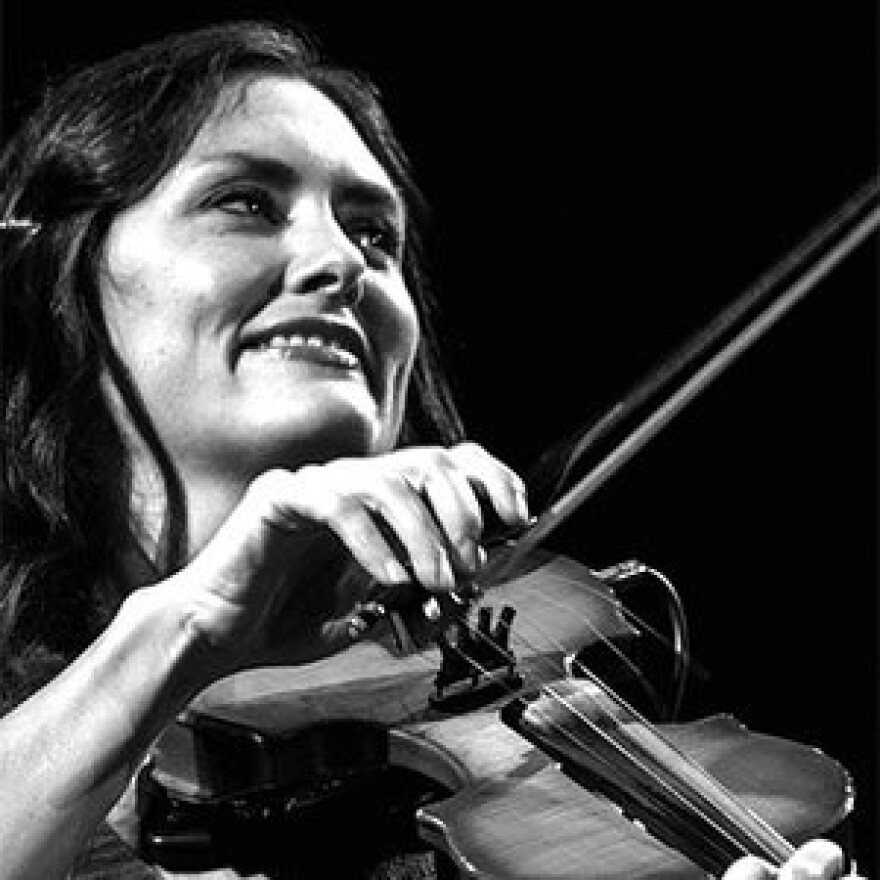There was a time, around Kansas City — and the whole country — when the Ozark Mountain Daredevils were the soundtrack of summer.
When you drove around town, “If You Wanna Get To Heaven” and “Jackie Blue” blasted from car stereos tuned to radio stations playing what we now refer to as classic rock. More rustic songs like “Standing on A Rock” and “Chicken Train” were cult favorites, perfect for singalongs around bonfires at the lake.
In this part of the country, everyone knew the Daredevils. Now, at an age when most bands are long past retirement, they’re still walking the rock-strewn path that got them here in the first place.
“The early days in KC for me were probably the most fun because it was all eye opening, you know? Everything was huge and a huge surprise for me at every turn,” says percussionist Ruell Chappell, who was in the band from 1976 to 1980 and rejoined in 2008.
During its peak years, few bands could draw a bigger crowd in Kansas City. In fact, the Daredevils were “discovered” at Kansas City’s legendary Cowtown Ballroom by Glyn Johns, who produced and/or engineered the Eagles, the Rolling Stones and the Band.
“If You Wanna Get To Heaven” made it to No. 25 on the Billboard Hot 100 in 1973; two years later, “Jackie Blue” hit No. 3 on the Billboard Pop Charts.
The Daredevils’ original members, including the band’s current core of guitarist John Dillon, drummer Steve Cash, and bassist Michael Supe Granda, were all from Springfield, Missouri. And their music definitely felt like the mountains.
In the music industry, though, no one knew exactly what they were. Early on, they were stamped with the tag “country rock,” a label so broad it’s meaningless; besides, they rocked way too hard to be country. But there were too many bluegrass and country flourishes for a Southern Rock band.
And the Daredevils did things their own way.
Back in the days before VCRs, fans working to follow bands like the Daredevils stayed up late on weekend nights to catch their performances on wildly popular TV shows like "Midnight Special" and "Don Kirshner’s In Concert."

Chappell remembers being 24 years old, sitting on a broken-down bus and waiting for a replacement bus to arrive, when they got a call from the band’s original manager, Stan Plesser of Kansas City.
“Don Kirshner wants you on In Concert tomorrow night,” Plesser said.
But the Daredevils wouldn’t go for it.
“I sat there and watched Dillon and Cash just go, ‘Aw, we want to go skiing,’” Chappell recalls. “I didn't know what to say. They just were never about doing things by the formula in any way, shape or form.”
That also included cashing in on the success of “Jackie Blue.”

“(The label in) L.A. was telling the guys, ‘You need to move out here and do a whole bunch of “Jackie Blues,”’ and the band just didn't have any time for that,” Chappell says.
The song wound up both a blessing and a curse. Its mellow, soft rock vibe didn’t sound like any other Ozark Mountain Daredevils song.
They might not have had any other big hits, but the band has toured the U.S. and the world many times over during the intervening years. And they’ve found plenty of time to make more perfect-for-summertime music, including “Off The Beaten Path,” their first new record in 20 years.
It’s filled with the band’s trademark harmonica wails, subtle twang and lived-in, organic sound.
“We're all pretty aware of how blessed we are to be able to do this.” Chappell says. “You know, the Stones or the Beatles, they haven't put out brand new music at this age. You know, there's nobody! We got them all,” he adds with a laugh.
As a celebration of just plain still being around, the band went into guitarist and producer Nick Sibley’s Springfield studio and reworked “If You Wanna Get To Heaven” as “Heaven 20/20,” a nod to surviving until the year 2020 (and a wink toward their diminishing eyesight).
That single’s deeper layers and barrelhouse rock proves the Daredevils’ sound isn’t just intact — it benefits from its first female member, Molly Healy, who plays fiddle and cello and whose voice helps update “Heaven 20/20.”
Confronting a changing world on songs like “No Way Out” and “Nosferatu,” the band is still going out of its way to figure things out. And it’s guilty of a little nostalgia, with songs like “You’re Still Here” and “My Old Man,” but then again, they’ve earned it. On “Gone Long Gone,” when Granda sings You just wanted to change me/When you said my hair’s too long/I saw those scissors, baby/I was gone, long gone, it’s clear they’re comfortable being who they’ve always been.
“It's more fun today than it ever was,” says Chappell, “because you realize how lucky you are to be able to still do this at this age and be around people that are still creating music and still doing new things.”
The Ozark Mountain Daredevils, 8:30 p.m. Saturday, May 18 at the Ameristar Casino and Hotel, 3200 North Ameristar Drive, Kansas City, Missouri 64161.
KCUR contributor Mike Warren has written for a variety of local and national music publications, including No Depression. Follow him @MikeWarrenKC.




